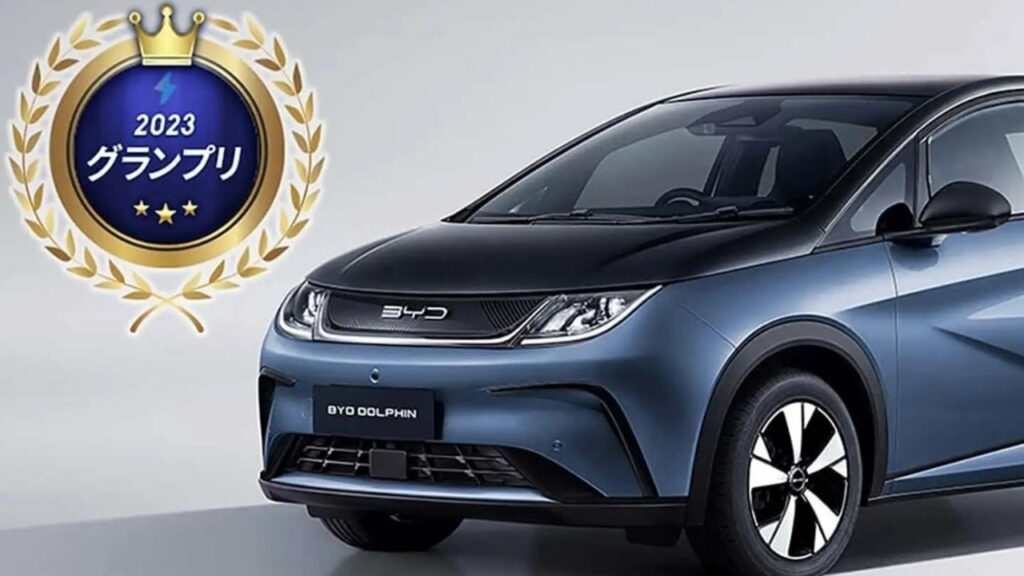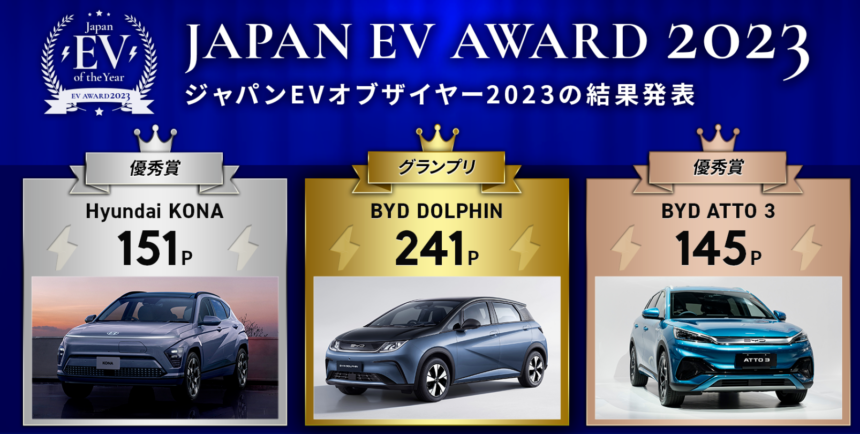Japan, a nation synonymous with car manufacturing, faces a surprising challenge: a lack of competitive electric vehicles (EVs) from its own domestic brands. This irony is highlighted by the recent “2023 Japan Electric Car of the Year” award, where a Chinese-made BYD Dolphin EV secured the top spot, with another BYD model and a Hyundai Kona rounding out the podium.

While Japanese consumers are known for their patriotism and preference for domestic brands, the reality is that current offerings from Japanese automakers haven’t captured the market’s imagination. Even experts predict that many Japanese car companies could struggle in the coming decade without a significant shift towards EVs.
This situation presents a golden opportunity for foreign competitors, particularly BYD. The company seems intent on grabbing a significant share of the Japanese market, and the Dolphin’s success is a testament to its strategy. The compact size and competitive price point (around $24,500 USD) resonate with Japanese consumers accustomed to smaller vehicles and value-driven purchases.
The award results are even more striking considering the limited options available from Japanese brands. Only four out of 18 contenders were Japanese, with none managing to impress voters. This lack of compelling domestic options further paves the way for BYD and other foreign manufacturers.
The dominance of Chinese EVs is a surprising development, considering the traditional perception of superior quality associated with Japanese products. However, consumer sentiment appears to be shifting, with many now favoring the value and capabilities of Chinese EVs.
This trend extends beyond the “Car of the Year” award. BYD’s overall success in China, the world’s largest EV market, coupled with its growing global presence, positions it as a major threat to established Japanese automakers.
The future of Japan’s car industry hinges on its ability to adapt to the rapidly evolving EV landscape. While BYD currently enjoys a free reign in the compact EV segment, other foreign players like Tesla are also eyeing a significant slice of the market.
Japanese car manufacturers must act swiftly to develop competitive EVs that cater to consumer needs and price expectations. Their historical dominance in the automotive sector is no guarantee of success in the new era of electric mobility.

